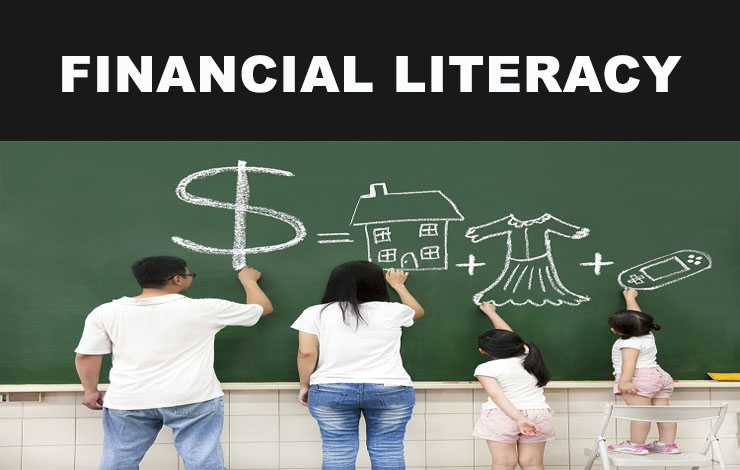Financial literacy is the ability to understand and use financial information. It includes knowledge of basic financial concepts, such as income, expenses, savings, debt, and investing.
Financial literacy is important because it can help people make better financial decisions. When people are financially literate, they are more likely to:
-
Achieve their financial goals
-
Reduce debt
-
Save for retirement
-
Protect themselves from financial fraud
What are the key concepts of financial literacy?

Concepts of financial education
In addition to the concepts presented in the original article, here are some additional information about the key concepts of financial literacy:
-
Income:
- Earned income: This is the income you earn from your job.
- Investment income: This is the income you earn from your investments.
- Passive income: This is the income you earn without having to work.
- Variable income: This is the income that can fluctuate over time.
- Fixed income: This is the income that remains constant over time.
- Expenses:
- Fixed expenses: These are the expenses you have every month, regardless of your income.
- Variable expenses: These are the expenses that can vary from month to month.
- Essential expenses: These are the expenses you need to live, such as food, housing, and transportation.
- Non-essential expenses: These are the expenses that are not necessary to live.
- Saving:
- Saving goals: It is important to have saving goals so you can stay motivated.
- Types of savings accounts: There are different types of savings accounts, with different interest rates and conditions.
- Low-risk investments: These are investments that have a low risk of capital loss.
- Debt:
- Different types of debt: There are different types of debt, such as credit card debt, personal loan debt, and financing debt.
- How to pay off debt: It is important to create a plan to pay off your debt as quickly as possible.
- How to avoid debt: It is important to avoid spending more than you earn.
- Investing:
- Different types of investments: There are different types of investments, such as stocks, bonds, mutual funds, and real estate.
- How to choose investments: It is important to choose investments that are right for your goals and your risk profile.
- How to invest safely: It is important to invest safely to avoid capital losses.
How to improve your financial literacy
In addition to the tips presented in the original article, here are some additional tips for improving your financial literacy:
- Take a financial literacy course. There are many online and in-person courses available, both free and paid.
- Read financial books and articles. There is a lot of information available online and in libraries.
- Talk to a financial advisor. A financial advisor can help you create a financial plan that meets your individual needs.
- Use financial tools and resources. There are many apps, websites, and software that can help you manage your finances.
Challenges of financial literacy
In addition to the challenges presented in the original article, here are some additional challenges of financial literacy:
- Lack of financial education: Many people do not receive formal financial education in school or at home.
- Complexity of the financial system: The financial system can be complex and difficult to understand.
- Financial discrimination: Some people may be discriminated against because of their income, race, ethnicity, or gender.
What do we cover in this article?
Financial literacy is essential for anyone who wants to take control of their finances. By learning about the key concepts of financial literacy, you can make better financial decisions and improve your financial well-being.
